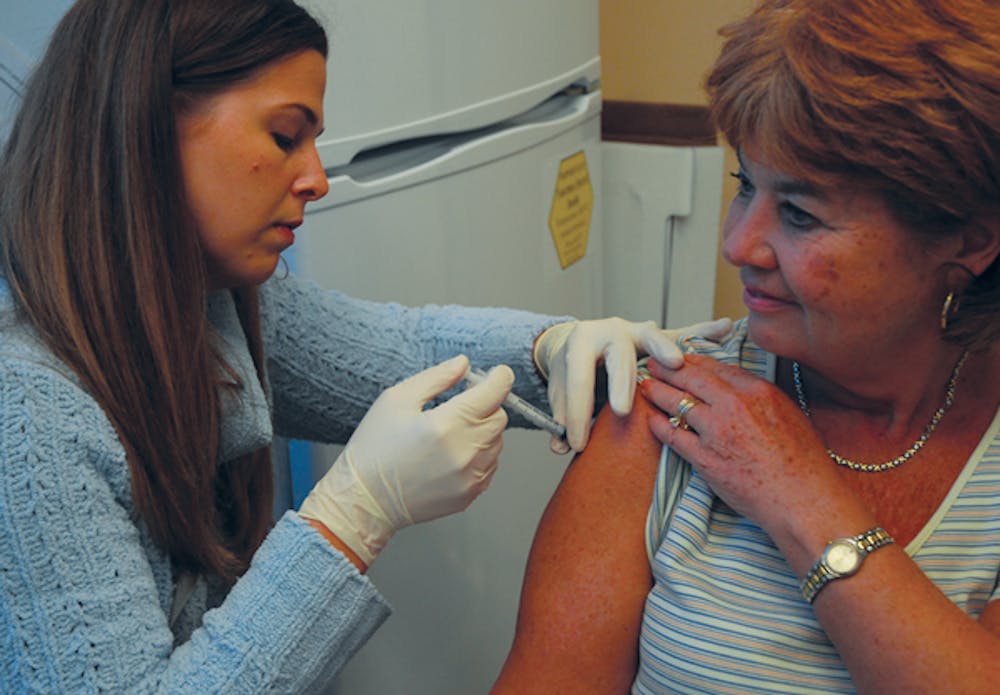This article was published in the 2009 Year in Review issue of The Daily Tar Heel.
2009: The year of the swine.
Prevention has been one of the key goals of UNC Campus Health Services in dealing with the H1N1 virus, commonly known as swine flu. Health officials hope those precautions will be enough when students return next semester.
During fall 2009, Campus Health advertised various preventative measures, provided vaccinations and free flu kits, and suggested students self-quarantine when symptoms arise.
Mary Beth Koza, director of UNC’s department of environment, health and safety, said the University has done an excellent job in handling the challenges surrounding the virus.
“We’ve set a great example for other universities,” she said.
She said UNC had to improvise and plan ahead in order to deal with the virus. She added that when the Centers for Disease Control released recommendations for college campuses during the late summer months, they aligned with the plans UNC had already put in place.
But despite precautions, the University is not yet in the clear.
Koza said UNC might experience a third wave of swine flu at the end of January. She added that vaccinations will be a top priority.
“Right now, only about 6,000 people have been vaccinated for the H1N1,” Koza said. “If you look at our population, that’s not too good.”
UNC ordered 28,000 vaccines for students, staff members, faculty members and hospital patients. Not all the vaccines have arrived. The normal influenza shot won’t necessarily protect against H1N1. Campus Health offers H1N1 vaccines to uninsured students for $12, and for free to those with certain providers.
A spreading virus
The H1N1 virus surfaced during spring 2009 in what was termed the first wave of the outbreak. The first recorded case of the virus at UNC was reported at Campus Health Services on May 29.
The second wave peaked highest on campus at the beginning of September, with Campus Health Services recording 343 cases during the week of Aug. 30.
The statewide peak came later — late September to early October, said Carol Schriber, public information officer for the N.C. Department of Health and Human Services.
The numbers have since declined as people develop immunities to the virus and make preventative measures a habit, Schriber said.
On Sept. 14, administrators announced that students no longer had to give their professors written excuse notes from Campus Health if they thought they might be infected with the virus.
The state received its first shipment of vaccines on Sept. 30 and has received about two million to date, Schriber said. UNC received its first shipment of doses Oct. 28.
The first 3,800 vaccines were distributed to the most at-risk populations. The vaccines are now available to anyone interested.
Administrators have been surprised by the low demand for the vaccines on campus. As of Dec. 4, just more than 20 percent of the vaccines ordered had been administered to the University population.
All estimates are based on of the number of patients reporting flu-like symptoms. Patients who report flu-like symptoms to Campus Health are told to take the precautions as if they had the H1N1 virus.
Contact the University Editor at udesk@unc.edu.



